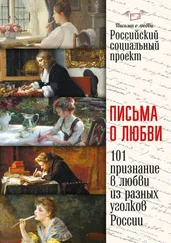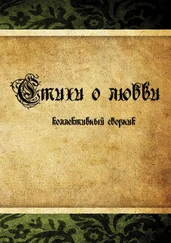Thou shalt remain(ты останешься) , in midst of other woe(посреди иного бедствия; woe [wəʋ] — /поэт./ горе, напасть, несчастье )
Than ours(чем наше) , a friend to man, to whom thou say’st(подруга человеку, которому ты говоришь),
“Beauty is truth, truth beauty(красота есть истина, /а/ истина — красота; truth [tru:θ] — правда; истина; beauty ['bju: tɪ] — красота ) ,” — that is all(это все)
Ye know on earth, and all ye need to know(что вы знаете на земле, и все, что вам надо знать; earth [ɜ:θ] — земля; ye [ ji: ] — /уст. поэт./ вы /мн. число/ ).
1
Thou still unravish’d bride of quietness,
Thou foster-child of silence and slow time,
Sylvan historian, who canst thus express
A flowery tale more sweetly than our rhyme:
What leaf-fring’d legend haunts about thy shape
Of deities or mortals, or of both,
In Tempe or the dales of Arcady?
What men or gods are these? What maidens loth?
What mad pursuit? What struggle to escape?
What pipes and timbrels? What wild ecstasy?
2
Heard melodies are sweet, but those unheard
Are sweeter; therefore, ye soft pipes, play on;
Not to the sensual ear, but, more endear’d,
Pipe to the spirit ditties of no tone:
Fair youth, beneath the trees, thou canst not leave
Thy song, nor ever can those trees be bare;
Bold Lover, never, never canst thou kiss,
Though winning near the goal — yet, do not grieve;
She cannot fade, though thou hast not thy bliss,
For ever wilt thou love; and she be fair!
3
Ah, happy, happy boughs! that cannot shed
Your leaves, nor ever bid the Spring adieu;
And, happy melodist, unwearied,
For ever piping songs for ever new;
More happy love! more happy, happy love!
For ever warm and still to be enjoy’d,
For ever panting, and for ever young;
All breathing human passion far above,
That leaves a heart high-sorrowful and cloy’d,
A burning forehead, and a parching tongue.
4
Who are these coming to the sacrifice?
To what green altar, O mysterious priest,
Lead’st thou that heifer lowing at the skies,
And all her silken flanks with garlands drest?
What little town by river or sea shore,
Or mountain-built with peaceful citadel,
Is emptied of this folk, this pious morn?
And, little town, thy streets for evermore
Will silent be; and not a soul to tell
Why thou art desolate, can e’er return.
5
O Attic shape! Fair attitude! with brede
Of marble men and maidens overwrought,
With forest branches and the trodden weed;
Thou, silent form, dost tease us out of thought
As doth eternity: Cold Pastoral!
When old age shall this generation waste,
Thou shalt remain, in midst of other woe
Than ours, a friend to man, to whom thou say’st,
«Beauty is truth, truth beauty,» — that is all
Ye know on earth, and all ye need to know.
John Keats
I WOULD I WERE A CARELESS CHILD
(Я хотел бы быть беззаботным ребенком)
I would I were a careless child(я хотел бы быть беззаботным ребенком: «я бы хотел, /чтобы/ я был бы…»),
Still dwelling in my highland cave(по-прежнему живущим в моей горной пещере; to dwell — жить, обитать, находиться, пребывать; highland ['haɪlənd] — горная местность; still — до сих пор, все еще, по-прежнему ),
Or roaming through the dusky wild(или блуждающим по сумеречной дикой/пустынной местности; to roam [rəʋm] — бродить, путешествовать, скитаться, странствовать; dusk — сумерки; полумрак, сумрак; through [θru: ] — через, сквозь ),
Or bounding o’er the dark blue wave(или подскакивающим на темно-синей волне; to bound [baʋnd] — прыгать; скакать; подпрыгивать; o’er = over — через );
The cumbrous pomp of Saxon pride(обременительное/тягостное великолепие саксонской гордости/гордыни; cumbrous ['kʌmbrəs] = cumbersome ['kʌmbəsəm] — громоздкий, объемный; обременительный, тягостный; pomp — помпа, богатство, великолепие, пышность, роскошь; Saxon ['sæks(ə)n])
Accords not with the freeborn soul(не согласуется = плохо сочетается с свободнорожденной душой; to accord [ə'kɔ:d] with — гармонировать, соответствовать, согласовываться ),
Which loves the mountain’s craggy side(которая любит = которой мил скалистый склон горы; side — сторона, бок; склон /горы/; crag — скала, утес ),
And seeks the rocks where billows roll(и ищет скалы/рифы, где катятся валы/большие волны; rock — скала, утес; подводный камень, риф; billow — /поэт./ большая волна, вал ).
Fortune! take back these cultured lands(Судьба! возьми обратно: «назад» эти обработанные/ухоженные земли/края; fortune ['fɔ:ʧu: n] — судьба, фортуна; cultured ['kʌlʧəd] — культивированный, культурный ),
Take back this name of splendid sound(возьми обратно это великолепно звучащее имя: «имя великолепного звука»; splendid — роскошный, великолепный, величественный )!
I hate the touch of servile hands(я ненавижу прикосновение рабских/холопских рук; servile ['sɜ:vaɪl] — рабский; подобострастный, раболепный, холопский ),
I hate the slaves that cringe around(я ненавижу рабов, что здесь пресмыкаются: «раболепствуют вокруг»; to cringe — раболепствовать, угодничать ).
Place me among the rocks I love(помести меня среди скал, что мне милы),
Which sound to Ocean’s wildest roar(которые отвечают звуком: «звучат /ответно/» на самый дикий рев океана);
I ask but this — again to rove(я прошу лишь об этом — вновь скитаться; to rove [rəʋv] — скитаться; странствовать; бродить, путешествовать )
Читать дальше
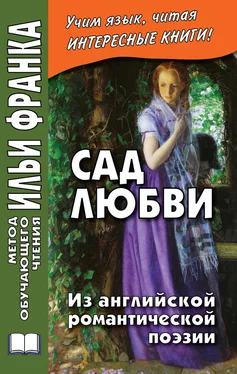
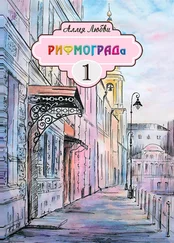
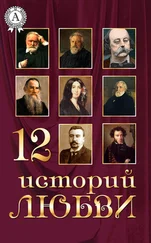
![Коллектив авторов - Сад любви. Из английской романтической поэзии [litres (Метод обучающего чтения Ильи Франка)]](/books/414585/kollektiv-avtorov-sad-lyubvi-iz-anglijskoj-romanti-thumb.webp)







